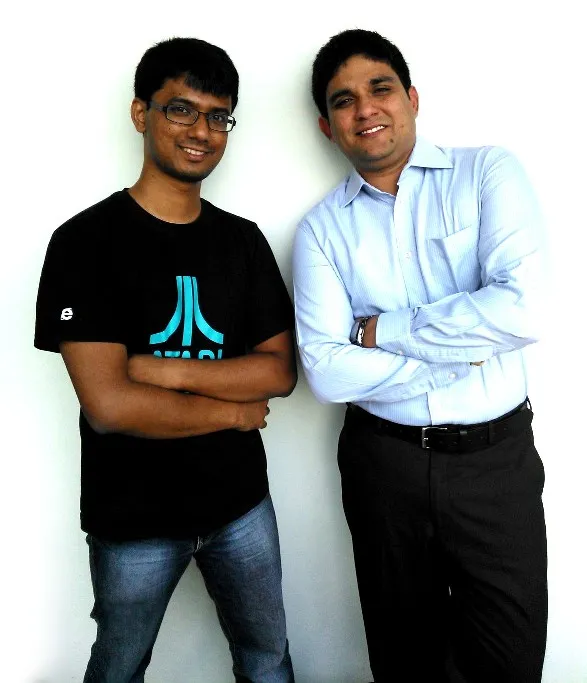Building the missing link among current crop of social media platforms: Scrollback
Facebook allows you to connect with friends. Twitter enables conversations with strangers. In this age of social media overdose, is there room for another community platform? Two IIT Kharagpur graduates, Gaurav Srivastava and Aravind Ravi Sulekha seem to have found a missing link in both these popular social media network sites and thus started, Scrollback, to fill the gap.

The missing link they identified was being able to engage in real time conversations and on relevant topics only. But it does not have a separate interface, and one of its most interesting feature is the ability to embed it with one's own site. For eg. If you are a travel blogger, to engage with the travel community, you can simply integrate your blog with Scrollback's chat with opens up a screen on your blog itself. Scrollback also doesn't require you to signup and the duo have tried to keep the interaction as friction less as possible, to maximise participation.
Speaking of their entrepreneurial journey, Aravind says: "in building a community product, our biggest challenge was the code of conduct of people. Technology was the simpler part". The duo have taken a cue from IRC, a public chat forum largely used by geeks for tech related queries. “For queries on any topic generally, people are still using Google search, which refers you to multiple forums, that are often dated”, he says. Gaurav adds that the fundamental flaw with existing forums is that there is no scope to have a conversation and they is what Scrollback wants to enable.
The duo started working on the startup in August 2012, with an office in Bangalore and were incubated and incorporated as a company in Singapore early this year by JFDI.
How did JFDI happen? What was the experience? We had a barrage of questions for them, since they were the only team who came from India for the programme. "By December 2012, we had a minimum viable product ready. But thereon, what we needed the most was mentorship. For the kind of product we were trying to build, it was very difficult to find the right mentors in India. Meng, who is the tech guy at JFDI, was the best person for that", explains Aravind about their choice of applying to JFDI.
"The other thing was, with our product, we needed to be in a mobile friendly market, to really understand its full potential, we need a lot of people to be online. Bay Area would have been ideal, but Singapore is a great testing ground", adds Gaurav.
The interview and selection process took them about three weeks and several rounds of calls and discussion. Besides mentorship, the opportunity to present before several investors on the demo day was something the duo cherish. "In terms of opportunity, it couldn’t have been better, even if we decide to work from India going forward (for cost reasons), it was worth making this journey. The exposure we got, interacting with the other teams, with people from all over the world, it has really helped us, personally and professionally", says Aravind.
The product has been launched for the developer community first to test the waters and iron out any teething issues, before they make it available to mainstream audience. Currently, Scrollback has 2,500 subscribers and the startup is focused on gaining more traction before they start monetizing the site. Eventually, the company also plans to enable sign up on their website, so the subscribers can see all the communities they're following in one place.
Their current team size is five, which comprise of two founders and three interns based in Bangalore and they plan to hire two more developers and one UX-UI designer in the team. In order to expand and grow their business, Scrollback is seeking investment to the tune of approximately $300,000 and are speaking to a few investors for it.
However their biggest challenge been has been to integrate all the advice they got from everyone, "particularly because they all made sense", Aravind says candidly. We conclude our conversation with Gaurav speaking of his journey from the corporate world to a startup, "the toughest part is the paycheck that you get addicted to in a corporate job, that takes a little time to get used to (not having)" he laughs.
Company Website: Scrollback







